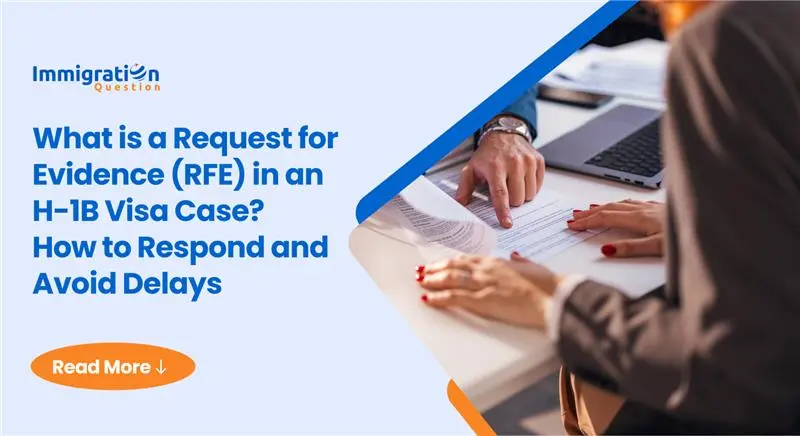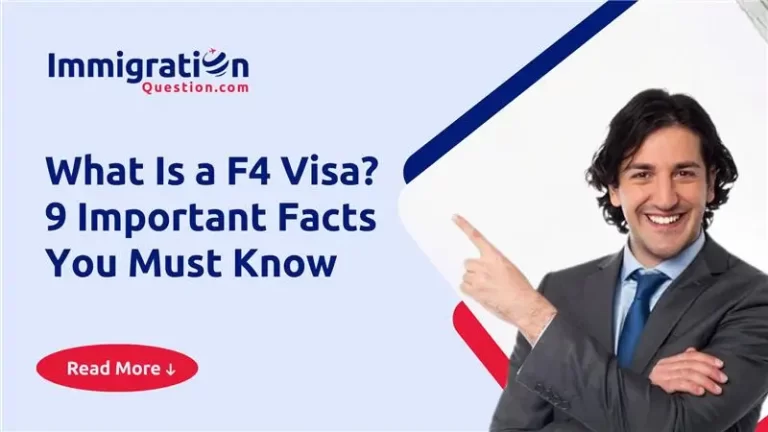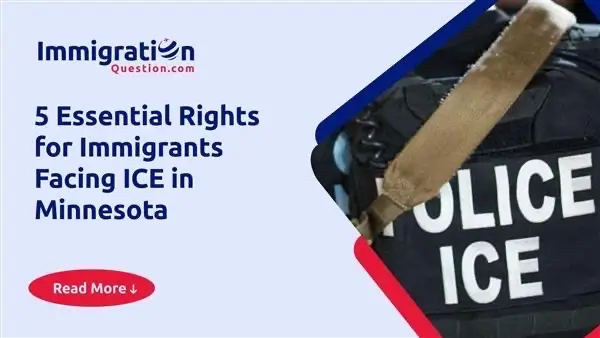Applying for an H-1B visa can be a long and detailed process, and it becomes really unsettling when you get a Request for Evidence (RFE) from U.S. Citizenship and Immigration Services (USCIS). However, getting an RFE doesn’t mean your visa will be denied—it simply means that USCIS needs more information to make a decision. This guide explains what a Request for Evidence RFE is, why it happens, how to respond effectively, and steps you can take to avoid receiving one in future applications. With proper understanding and preparation, you can successfully address an RFE and move forward with your H-1B visa application.
What is a Request for Evidence (RFE)?
An RFE, or Request for Evidence, is a formal notice from USCIS asking for additional documentation or clarification before making a final decision on your H-1B visa application.
USCIS issues RFEs when they believe something is missing, unclear, or insufficient in your original submission. It is not a denial but a second chance to prove that your petition meets all the H-1B visa requirements. The notice specifically outlines what additional evidence is needed and provides a deadline for submission.
What are the Common Reasons for H-1B Request for Evidence?
Understanding why USCIS issues RFEs can help you prepare a stronger initial application or respond more effectively. Here are the most common reasons:
- Specialty Occupation Issues: USCIS may question whether your position truly qualifies as a specialty occupation requiring specialized knowledge and a bachelor’s degree or higher. They might request additional evidence about the position’s complexity or industry standards.
- Employer-Employee Relationship: For positions involving third-party worksites or consulting arrangements, USCIS often requests evidence proving the petitioning employer maintains control over the beneficiary’s work.
- Educational Qualifications: If your degree is from a foreign institution or in a field not directly related to the position, USCIS may request evidence showing degree equivalency or relevance.
- Wage Level Concerns: If the offered wage seems low for the position, particularly at Level 1, USCIS might question whether the job truly requires specialized skills or higher education.
- Maintenance of Status: For H-1B transfers or extensions, USCIS may request proof that you’ve maintained lawful status, including pay stubs, tax returns, or other documentation.
Looking for a solution to your immigration case? Immigration Question allows you find qualified attorneys who specialize in immigration matters. Get personalized legal guidance tailored to your unique situation today.
How to Respond to an H-1B RFE Effectively
A successful response can make the difference between approval and denial. Here’s how to handle it:
- Review the RFE Notice Carefully: Read the entire notice multiple times to understand exactly what USCIS is requesting. Each RFE is specific to your situation, so generic responses won’t suffice. If needed, consult an H-1B attorney to interpret it correctly.
- Organize Your Response: Address each concern separately and clearly label your response to match the RFE’s format. This helps the reviewing officer easily find the requested information.
- Gather Comprehensive Documentation: Collect all required evidence mentioned in the RFE. This might include expert opinion letters, detailed job descriptions, additional educational evaluations, or industry reports.
- Prepare a Strong Cover Letter: Include a professional cover letter that references the RFE notice date and receipt number. Organize documents with labels or a table of contents.
- Be Thorough Yet Concise: Your response should be detailed enough to satisfy the officer but clear and direct. Quality matters more than quantity.
How does RFE affect your H1B Visa application?
An RFE extends your application timeline but doesn’t necessarily hurt your chances of approval. The typical RFE document gives you a specific deadline—usually between 30 – 90 days from issuance—to submit your response.
Once you submit your response, USCIS will continue processing your case. The additional review time varies depending on the deadline and the overall processing.
Once your response is submitted, USCIS will resume review. You can expect:
- Approval if the evidence satisfies the request
- Denial if the evidence is insufficient
- Another RFE if the initial response does not satisfy all concerns or additional questions arise.
Timely and accurate responses are crucial. Missing a deadline means that USICS makes a decision based on existing evidence.
How to avoid RFEs in future H1B applications
Prevention is always better than cure. Here’s how to minimize your chances of receiving an RFE:
- Understand H-1B Visa Requirements: Familiarize yourself with USCIS criteria for specialty occupations, valid employer-employee relationships, and educational requirements before applying.
- Provide Comprehensive Initial Documentation: Anticipate potential questions and include supporting evidence proactively, such as detailed job descriptions, organizational charts, and educational evaluations. Don’t assume USCIS will “figure it out.”
- Stay Current on USCIS Trends: RFE patterns can change over time. Stay updated on online forums like Immigration Questions to understand new trends and prepare accordingly.
- Address Potential Red Flags: If your case has complicated elements—like a degree in a field different from your job or third-party work arrangements—address these issues upfront with additional evidence.
- Consider Professional Guidance: An experienced H-1B immigration lawyer can identify potential weaknesses in your petition before filing and help strengthen your application.
Final Thoughts
A Request for Evidence in an H-1B case can feel overwhelming, but it’s really an opportunity to clarify and strengthen your application. Knowing how to respond properly—and getting help when needed—can significantly improve your chances of approval.
However, navigating the RFE process can be complex, and the stakes are high. Working with an H-1B attorney can help you address all USCIS concerns effectively and boost your chances.
With Immigration Question, you can have all your questions answered and connect with experienced immigration attorneys who specialize in H-1B visas to guide you through the RFE process.
Frequently Asked Questions
-
Is receiving an RFE a sign that my H-1B visa will be denied?
No, an RFE simply means USCIS needs more information. Many H-1B petitions receive RFEs and are still approved—especially when responded to thoroughly.
-
How much time do I have to respond to an RFE?
Usually 30, 60, or 90 days—depending on what USCIS states in the RFE notice. Late responses will result in denial.
-
Can I submit new information that wasn’t in my original application?
Yes, you can provide new evidence that addresses the specific concerns raised in the RFE, even if it wasn’t included in your initial petition.
-
What happens if I miss the RFE deadline?
USCIS will make a decision based on the information in your original petition, which often results in denial. Extensions are rarely granted, so a timely response is crucial.











